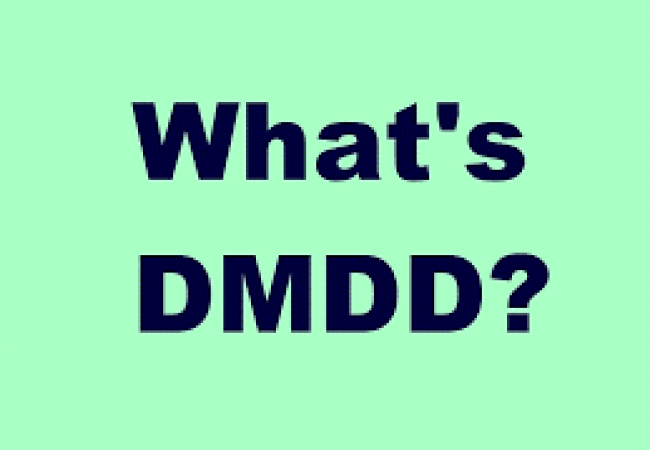
We are going to discuss BOTH Bipolar Disorder and DMDD “Disruptive Mood Dysregulation Disorder,” but we thought to bring all the aspects of both disorders in a more efficient way and understanding we needed to break these disorders down and offer them in two different blogs posts so that there is a better understanding in the differences in each with no confusion.
We will be talking about both in each post but the breakdown of each will be separated so there is a better understanding of each.
First, we are going to start with the: DMDD “Disruptive Mood Dysregulation Disorder”
What is DMDD- Disruptive Mood Dysregulation Disorder?
Disruptive Mood Dysregulation Disorder (DMDD) is a condition in which children are persistently irritable, angry, or annoyed. These irritable moods are punctuated by intense temper tantrums that are disproportionate to the situation and more severe than the typical reaction of same-aged peers.
DMDD is a relatively new disorder. It first appeared in the Diagnostic and Statistical Manual of Mental Disorders (DSM-5) in 2013. The new diagnosis grew out of a concern that some children were being diagnosed and treated for bipolar disorder when they did not meet the full criteria.
DMDD disorder key facts:
• Severe temper outbursts that occur, on average, three or more times per week
• The child’s mood between outbursts is consistently angry or irritable
• This pattern of frequent outbursts, plus consistent anger, or irritability between outbursts, continues for 12 or more months, without a break in symptoms of 3 or more months
• Onset typically takes place before age 10
• DMDD symptoms can show in children with autism, ADHD, and neurotypical development and impact of co- occurring ODD, depression, and anxiety.
We all know that its normal for children in general speaking to be moody, but children with DMDD spend most of their days in an irritable or annoyed state. This chronic irritability is interspersed with fits of rage that appear with little to no provocation.
For example, something as seemingly inconsequential as being served a glass of milk instead of juice can provoke a screaming episode that lasts for a half hour or more.
Children with DMDD can become physically aggressive as well. They may throw things or become aggressive with their parents, friends, or siblings. Their behavior makes families feel that they are walking on eggshells, never knowing when their child will erupt. With DMDD, the symptoms go beyond the normal irritability and typical childhood temper tantrums. They are so frequent and can be so severe that they become life-disrupting for both the child and his or her family.
Here we outline the diagnostic criteria and features of the newly established diagnosis of disruptive mood dysregulation disorder (DMDD) and discuss how this disorder differs from bipolar disorder in childhood. The chronic, severe, nonperiodic irritability seen in patients with DMDD contrasts with the characteristic episodic mood swing symptoms of bipolar disorder.
Differentiating between the two diagnoses is important in prognostic and treatment considerations, as children with DMDD are more likely to develop a mood disorder later in life than classic bipolar disorder.
What causes DMDD?
Researchers do not know exactly what causes DMDD. It does not seem to stem from a traumatic event. In fact, if you had a child in trauma, you would be more likely to worry about a brief stress reaction or post-traumatic stress disorder. A history of chronic irritability does make children more likely to be diagnosed with DMDD, however.
Differential Diagnosis:
Obtaining a thorough social history is important, particularly when a child has mood disturbances, and a diagnosis of mental illness is being considered. The child’s past and present life experiences may lead to other possible diagnoses such as post-traumatic stress disorder or abuse. School performance can help to provide an objective measure of how the child’s symptoms are affecting his or her ability to function.
DMDD rarely exists as a mental health disorder in and of itself, typically coexisting with attention deficit hyperactivity disorder and/or anxiety disorders, complicating the course of illness.
INTERESTING FACT:
Disruptive mood dysregulation disorder (DMDD) is a controversial diagnosis introduced in the DSM-5 that is particularly relevant to autism and other disorders in which DMDD symptoms (irritable-angry mood and temper outbursts) are common.
Mothers rated DMDD symptoms in 1593 children with autism, ADHD, and neurotypical development (6–16 years, IQ lower than 80). Percentages with DMDD symptoms (often or very often) were autism 45%, ADHD-Combined type 39%, ADHD-Inattentive type 12%, and neurotypical 3%.
Almost all (91%) with DMDD symptoms met DSM-5 criteria for ODD, and 79% with ODD had DMDD symptoms. Only 5% without ODD had DMDD symptoms, and most of these had autism. Children with autism had significantly higher DMDD scores than all other groups, even when the oppositional behavior score (excluding the two DMDD symptoms) was controlled.
The findings suggest that DMDD and ODD are not meaningfully differentiated based on their symptoms and that DMDD symptoms are particularly common in autism, more so than expected by ODD alone.
DMDD, ODD, AUTISM and ADHD
• DMDD-Disruptive Mood Dysregulation Disorder
• Oppositional Defiant Disorder
• Attention Deficit Hyperactivity Disorder
DMDD has so much in common with both oppositional defiant disorder (ODD) and ADHD that it is sometimes hard to tell these three conditions apart. Some 90 percent of children with DMDD meet the criteria for ADHD, and about 80 percent meet the criteria for ODD. DMDD, ODD, and ADHD all cause irritable behavior and temper outbursts. The difference is in the rate and intensity — these behaviors are less frequent and severe in children with ODD and ADHD. DMDD is the irritable symptoms of ODD expanded a little bit more. About everyone who has DMDD is going to have ODD.
What is ODD?
ODD or better known as the medical term for Oppositional defiant disorder:
Most children who meet diagnostic criteria for DMDD also meet diagnostic criteria for oppositional defiant disorder; however, in addition to emotional outbursts, children with DMDD also will have mood symptoms (which are not characteristic of children with oppositional defiant disorder) and are more significantly impaired.
What Is ADHD?
ADHD or better known as Attention Deficit Hyperactivity Disorder:
ADHD is a brain disorder that affects how you pay attention such as sitting still and being able to control your behaviors and/or hyperactivity-impulsivity that interferes with daily functioning or development. It happens in children and teens and can continue into adulthood.
A clinical trial showed that 93.8% of young people with DMDD presented criteria of ADHD, 84.4% the criteria Oppositional Defiant Disorder (ODD) and 46.9% the criteria of anxiety disorders.
Similarly, according to another study, comorbidities with DMDD amounted to more than 25% for ADHD and ODD. Comorbidity is more than one disease or condition is present in the same person at the same time. Conditions described as comorbidities are often chronic or long-term conditions.
In closing: AGAIN, this is another blog post that hits home personally for my family as we have two daughters that one suffers from ADHD and the other DMDD with Suicidal/Homicidal tendencies.
The struggles that our two girls experience daily are not in their complete control but are manageable with coping skills they have learned, a family support system, and medication.
Take a step back when you are out in public and you see a child that seems to be acting as if they have had no kind of raising from their parents or in an extreme sense of the “crazy out of control toddler” when in all reality these families and their children may be suffering from a diagnosis such as Autism, DMDD, ADHD, or ODD and you not being a professional to determine the difference between the two of “Normal” or “Abnormal” behaviors shouldn’t be quick to be judgmental and make those opinionated decisions based on what you think or believe that you may be seeing or experiencing in a situation.
We are all entitled to our opinions but let us not turn a blind eye, criticize those, or feel our opinion needs to be heard because not always is our input needed when you have not walked in the shoes of a family or person coping with the daily struggles. BE MINDFUL folks. Have empathy and compassion instead. It goes a long way…


Leave a Reply